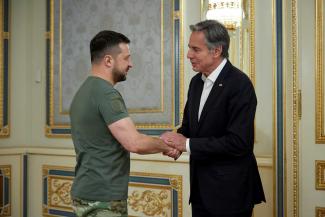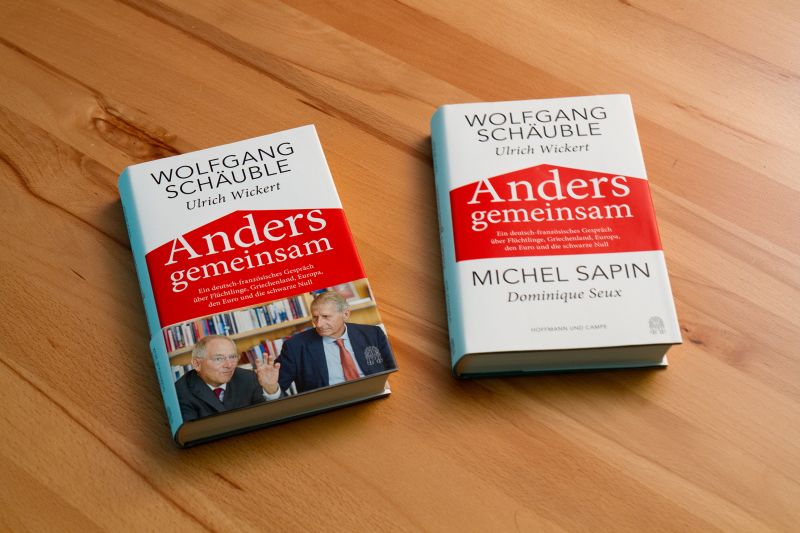International law
The west must respect international law more consistently

The territorial integrity of a sovereign state like Ukraine can only be changed by negotiation, not by military force. This principle is spelled out in the UN Charter’s prohibition of the use of force, which is the fundamental norm of the international order. Anyone who violates this norm challenges the world order itself.
Russia has done that. By launching its war of aggression against Ukraine, it committed a fragrant breach of international law. It is daily making matter worse, including with carpet bombings or so-called referendums and subsequent annexations.
The countries of the west are providing Ukraine with massive political, financial, humanitarian and military support. At the same time, they have imposed unprecedented sanctions on Russia. They claim their Ukraine policy is designed to defend the prohibition of the use of force and restore the rules-based international order. Not only the US as leading power has taken that stance. German policymakers have done so too, for example Annalena Baerbock, the federal foreign minister.
At the international level, however, the west’s response to Russia’s war of aggression is by no means fully endorsed. The UN General Assembly resolutions of 2 March (explicit condemnation of Russia’s war of aggression) and 12 October (condemnation of the so-called annexations) show that 141 and 143 of 193 states voted in favour and thus sent a clear signal to Moscow. Yet, the practical implementation of this normative call was rather limited. Only about 40 states took tangible steps such as imposing economic sanctions on Russia or providing military support to Ukraine. That is regrettable and astonishing in view of how severely and consistently Russia is violating international law. Several developing countries and emerging markets, in particular, have not sided with the west.
Damaged credibility
There are a number of reasons for this limited global support. They range from injustices committed in colonial times, other post-colonial legacies as well as current Russian support in either economic or military terms for the countries in question (also see Imme Scholz at www.dandc.eu).
It also matters that the west’s credibility has been dented by violations of international law committed by western countries in the recent past. Unfortunately, the list is quite long. The US led invasion of Iraq in 2003 under then President George W. Bush was a particularly important example: it violated the prohibition of the use of force under international law because it was neither sanctioned by a UN Security Council resolution nor justified by the right of self-defence.
More recent incidents include extrajudicial drone executions carried out as part of the United States’ “war on terror”. One more recent example is the killing of Al-Qaida leader Ayman al-Zawahiri in the Afghan capital Kabul in late July. Such breaches of the law undermine the west’s credibility on international law issues – even if, in many ways, Russia’s breaches are different and arguably worse (see Hans Dembowski at www.dandc.eu).
The ensuing loss of credibility affects not only the United States, but its allies too. Germany and the EU should therefore take a more consistent line on international law than they have done so far, for example clearly rejecting the US policy of extrajudicial executions. They should firmly declare where their interests are in conflict with those of the USA, and they should express criticism and concern where necessary. Unless the west consistently observes international law itself, it cannot credibly defend that law when it is violated as massively as at present in Ukraine.
Book
Ambos, K., 2022: Doppelmoral – Der Westen und die Ukraine. Frankfurt a.M., Westend.
There are shorter versions in English (Journal of International Criminal Justice) and Spanish (Editores del Sur).
https://academic.oup.com/jicj/advance-articles
https://www.editoresdelsur.com/productos/la-guerra-en-ucrania-kai-ambos-autor-leandro-dias-y-lucila-tunon-coord/
Kai Ambos is a professor of criminal law, criminal procedure, comparative law, international criminal law and public international law at the University of Göttingen.
kambos@gwdg.de











